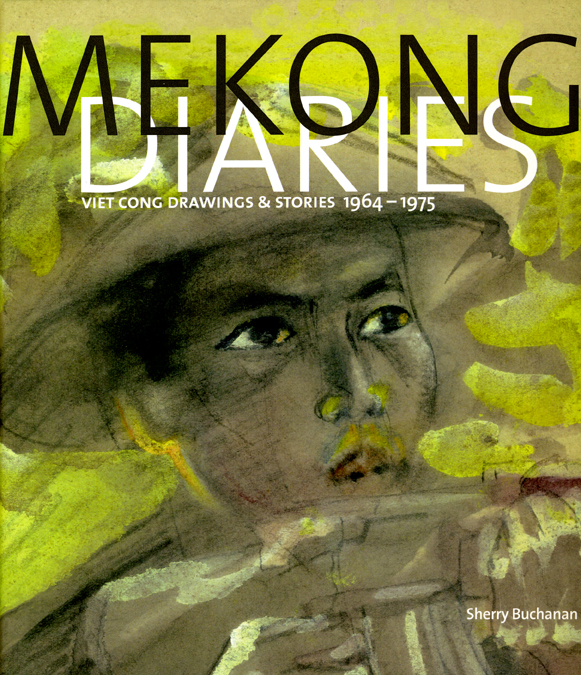The Things They Carried (and Painted)

This weekend marks the 41st anniversary of the beginning of the Tet Offensive, a major assault launched during the tacit lunar New Year ceasefire by the Viet Cong against the South Vietnamese and American armies. Though American forces quickly turned back the onslaught, the campaign was a political and psychological victory for the Communists and further eroded US support for the war.
Demonized by Americans as reds, gooks, and fanatical killers, the Viet Cong were said to have “committed the most unbelievable acts of terrorism the world has ever known,” as Hubert Humphrey once declared. But a new book offers an entirely new perspective on these enemy fighters. Mekong Diaries: Viet Cong Drawings and Stories, 1964-1975, by Sherry Buchanan, presents never-before-published drawings, poems, letters, and oral histories by ten of the most celebrated Viet Cong war artists.
These guerrilla artists—some military officers and some civilians—lived clandestinely with the fighters, moving camp alongside them, going on reconnaissance missions, and carrying their sketchbooks, ink, and watercolors into combat. Trained by professors from the Hanoi Institute of Fine Arts who journeyed down the perilous Ho Chi Minh Trail to ensure a pictorial history of the war, they recorded battles and events from Operation Junction City to Khe Sanh to the Tet Offensive. They also sketched as the spirit moved them, rendering breathtaking landscapes, hut and bunker interiors, activities at base camps, troops on the move, portraits for the families of fallen soldiers, and the unimaginable devastation that the conflict left in its wake. The collective record of these supposedly savage soldiers is an extraordinary historical and artistic document of people at war.
See sample images from the interior here. And also check out Buchanan’s Vietnam Zippos: American Soldiers’ Engravings and Stories (1965-1973) to see more of the things they carried. The engravings gathered in this copiously illustrated volume are at once searing, caustic, and moving, running the full emotional spectrum with both sardonic reflections—I Love the Fucking Army and the Army Loves Fucking Me—and poignant maxims—When the Power of Love Overcomes the Love of Power, the World Will Know Peace. Part pop art and part military artifact, they collectively capture the large moods of the sixties and the darkest days of Vietnam—all through the world of the tiny Zippo.